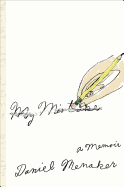Rousing renditions of "God's Gonna Set This World on Fire" and other gospel songs and spirituals had the crowd on its feet, dancing, clapping and toe-tapping, during a performance by James McBride and the Good Lord Bird Band at the Texas Book Festival in Austin late last month.
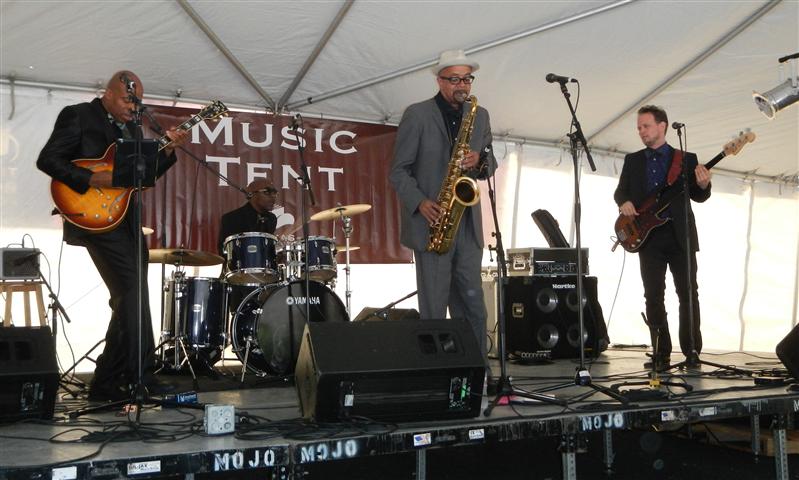 Between songs, McBride, who performed on saxophone and vocals, talked about his new novel, The Good Lord Bird (Riverhead), and read passages from it. He formed the band to promote the book, and the five-member group has been on the road entertaining audiences from Ohio to Orlando.
Between songs, McBride, who performed on saxophone and vocals, talked about his new novel, The Good Lord Bird (Riverhead), and read passages from it. He formed the band to promote the book, and the five-member group has been on the road entertaining audiences from Ohio to Orlando.
The author of the bestselling memoir The Color of Water and the novels Miracle at St. Anna and Song Yet Sung, McBride, who lives in New York, called this combination of two of his talents "a dream come true." He told Shelf Awareness shortly before taking the stage: "I love gospel music and always wanted to do a gospel performance outside of church. I know gospel music is popular, and I love to play it. So it seemed to me a good opportunity to do this."
The performance "is really arced completely around the book," McBride continued. The novel's central character is the "great and crazy" abolitionist John Brown, a deeply religious man who believed that god spoke to him and told him to take a stand against slavery. "He loved music, and the power of music in his life feeds into the power of religion."
The same deep feeling that compels musicians to create gospel music found a different sort of expression with the abolitionist. "If John Brown were a songwriter, he would've written a great song," McBride said. "But it inspired him to an act of criminality and disobedience that is now seen as an act of courage and brazenness and wanton revolutionary behavior."
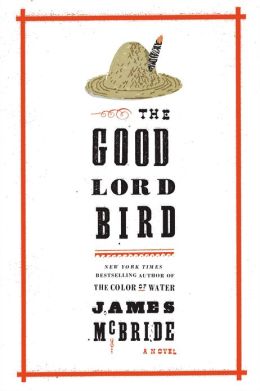 The story is told through the eyes of Henry Shackleford, a young boy born a slave. After his father is killed in the crossfire between Brown and pro-slavers, 10-year-old Henry is snatched up by the abolitionist as he flees the scene and unwittingly becomes part of Brown's ill-fated crusade. Curly-haired, petite and wearing a potato sack that resembles a dress, "Henrietta" is mistaken for a girl and plays along, deciding it's safer to keep quiet about his gender.
The story is told through the eyes of Henry Shackleford, a young boy born a slave. After his father is killed in the crossfire between Brown and pro-slavers, 10-year-old Henry is snatched up by the abolitionist as he flees the scene and unwittingly becomes part of Brown's ill-fated crusade. Curly-haired, petite and wearing a potato sack that resembles a dress, "Henrietta" is mistaken for a girl and plays along, deciding it's safer to keep quiet about his gender.
Beginning in 1857 in the Kansas Territory, a battleground between anti- and pro-slavery forces, Henry rides along with Brown and witnesses his doomed raid on a federal arsenal in Harpers Ferry, Va., two years later. The raid was one of the catalysts of the Civil War and an act alternately regarded as heroic and extremist--Brown had hoped to launch an armed revolt and end slavery. "Henry is giving you the raw version of John Brown, which you really need," said McBride. While the abolitionist's motives may have been well-intentioned, "he wasn't always a good guy and he didn't always do good things. If you show all of that, he becomes believable."
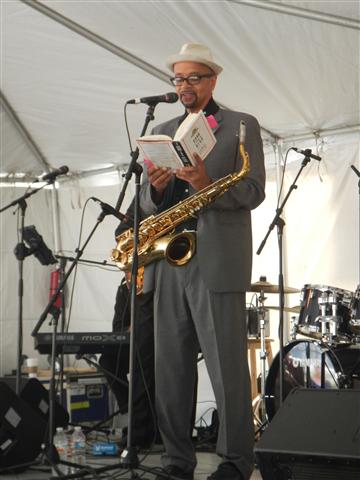 The novel's title refers to the Ivory-billed Woodpecker, now believed to be extinct, a bird so large it would elicit the response "Good Lord" when people laid eyes on it. After kidnapping Henry, Brown turns over to the boy his good luck trinkets, one of which is a feather from a Good Lord Bird, a key symbol in the story.
The novel's title refers to the Ivory-billed Woodpecker, now believed to be extinct, a bird so large it would elicit the response "Good Lord" when people laid eyes on it. After kidnapping Henry, Brown turns over to the boy his good luck trinkets, one of which is a feather from a Good Lord Bird, a key symbol in the story.
A 2013 National Book Award Finalist for Fiction, The Good Lord Bird has garnered comparisons to Mark Twain's works for its irony and humor. "This is not a take-your-medicine novel," said McBride. "This is a book of comedy and caricature, and it's supposed to make you laugh and inform you at the same time."
New Yorkers can catch a performance by James McBride and the Good Lord Bird Band at BookCourt in Brooklyn on November 17. --Shannon McKenna Schmidt
 Because the store's building will be demolished by a developer, East Line Books, Clifton Park, N.Y., is closing after the holidays, the Times Union reported.
Because the store's building will be demolished by a developer, East Line Books, Clifton Park, N.Y., is closing after the holidays, the Times Union reported.








 The 84-year-old
The 84-year-old  Novelist MacKenzie Bezos, who has been married to Jeff Bezos since before Amazon was born, yesterday posted a
Novelist MacKenzie Bezos, who has been married to Jeff Bezos since before Amazon was born, yesterday posted a  The review, which until that point was the only comment by Amazon--or any Bezos--on the book (which had attracted much attention for details about
The review, which until that point was the only comment by Amazon--or any Bezos--on the book (which had attracted much attention for details about 
 Effective yesterday, Random House Mondadori, whose headquarters are in Barcelona, Spain, has been renamed
Effective yesterday, Random House Mondadori, whose headquarters are in Barcelona, Spain, has been renamed 
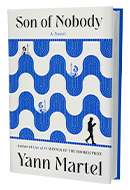
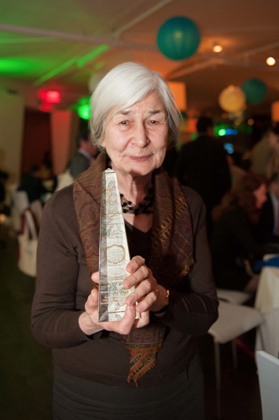


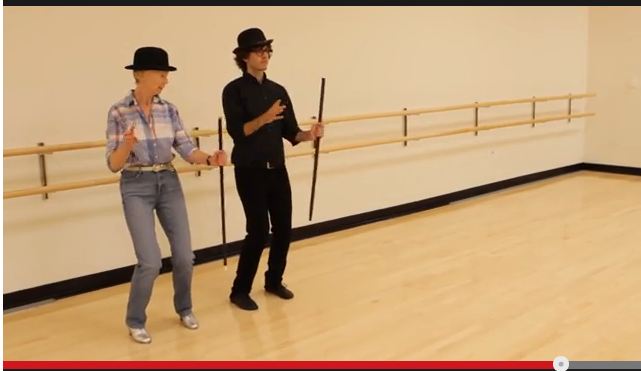 Sam Wasson, author of
Sam Wasson, author of  Between songs, McBride, who performed on saxophone and vocals, talked about his new novel, The Good Lord Bird (Riverhead), and read passages from it. He formed the band to promote the book, and the five-member group has been on the road entertaining audiences from Ohio to Orlando.
Between songs, McBride, who performed on saxophone and vocals, talked about his new novel, The Good Lord Bird (Riverhead), and read passages from it. He formed the band to promote the book, and the five-member group has been on the road entertaining audiences from Ohio to Orlando. The story is told through the eyes of Henry Shackleford, a young boy born a slave. After his father is killed in the crossfire between Brown and pro-slavers, 10-year-old Henry is snatched up by the abolitionist as he flees the scene and unwittingly becomes part of Brown's ill-fated crusade. Curly-haired, petite and wearing a potato sack that resembles a dress, "Henrietta" is mistaken for a girl and plays along, deciding it's safer to keep quiet about his gender.
The story is told through the eyes of Henry Shackleford, a young boy born a slave. After his father is killed in the crossfire between Brown and pro-slavers, 10-year-old Henry is snatched up by the abolitionist as he flees the scene and unwittingly becomes part of Brown's ill-fated crusade. Curly-haired, petite and wearing a potato sack that resembles a dress, "Henrietta" is mistaken for a girl and plays along, deciding it's safer to keep quiet about his gender. The novel's title refers to the Ivory-billed Woodpecker, now believed to be extinct, a bird so large it would elicit the response "Good Lord" when people laid eyes on it. After kidnapping Henry, Brown turns over to the boy his good luck trinkets, one of which is a feather from a Good Lord Bird, a key symbol in the story.
The novel's title refers to the Ivory-billed Woodpecker, now believed to be extinct, a bird so large it would elicit the response "Good Lord" when people laid eyes on it. After kidnapping Henry, Brown turns over to the boy his good luck trinkets, one of which is a feather from a Good Lord Bird, a key symbol in the story.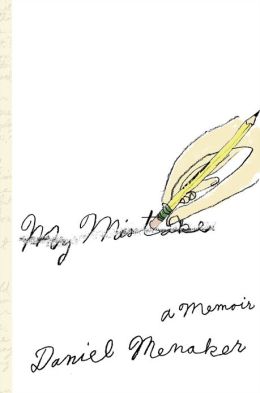 A bout with cancer--now in remission--led Daniel Menaker (Good Talk) to reflect on his past and his career in publishing. He tells that story in My Mistake, with a breezy wit and fascinating insider portraits of people with whom he has worked over the years.
A bout with cancer--now in remission--led Daniel Menaker (Good Talk) to reflect on his past and his career in publishing. He tells that story in My Mistake, with a breezy wit and fascinating insider portraits of people with whom he has worked over the years.